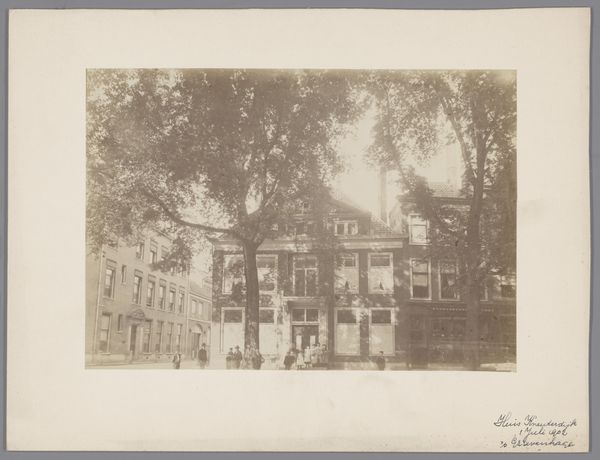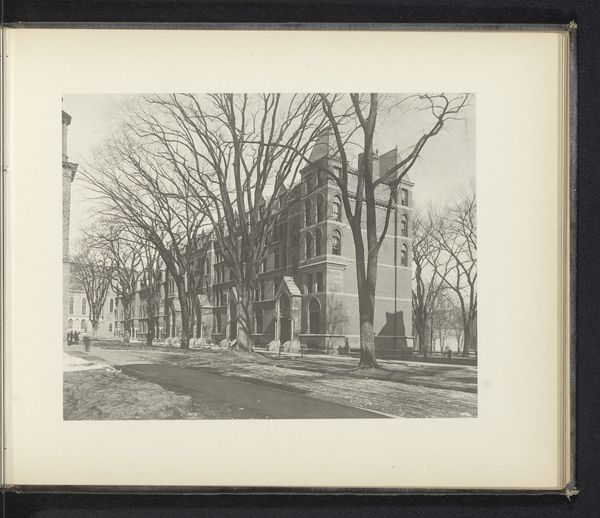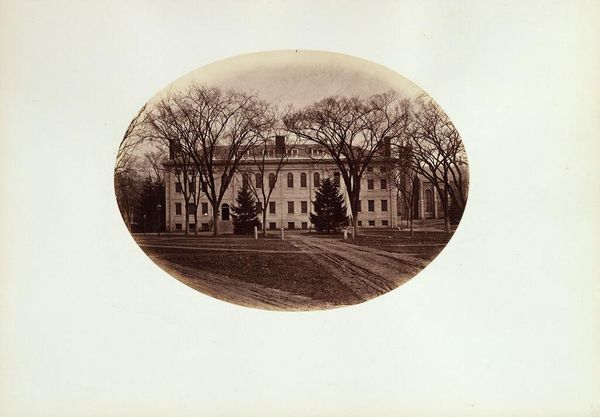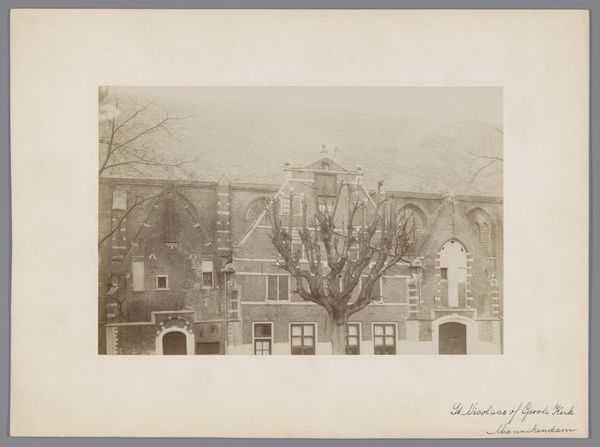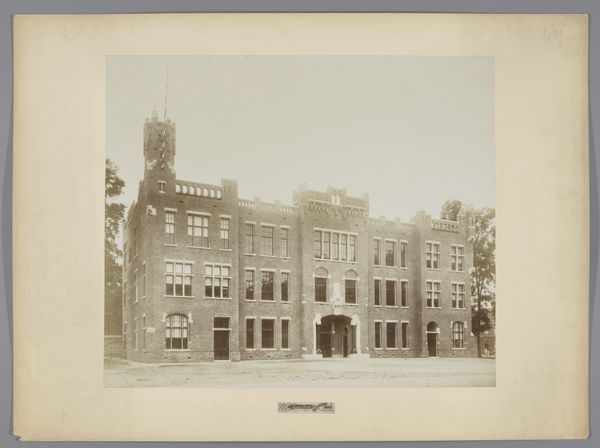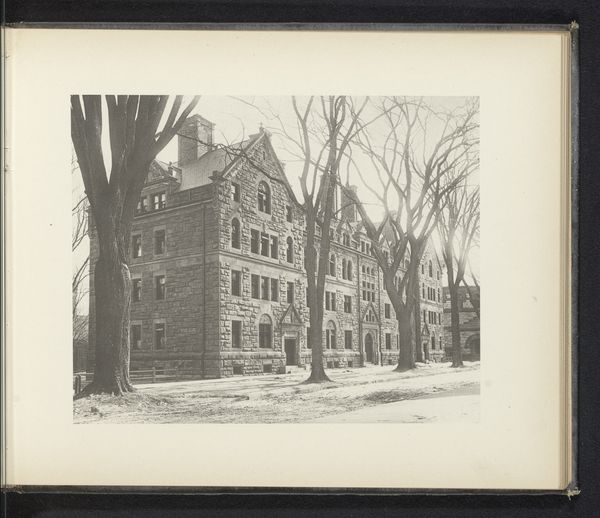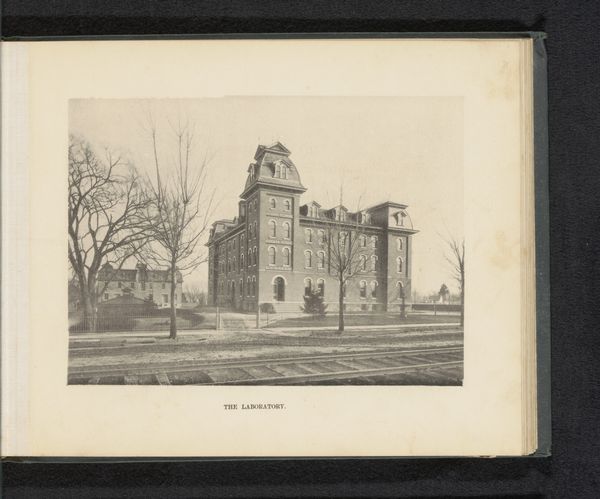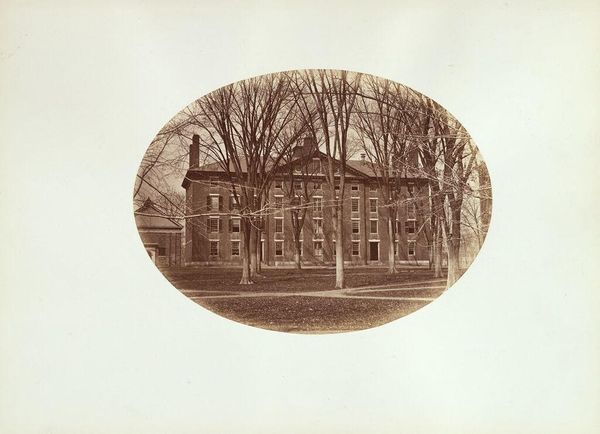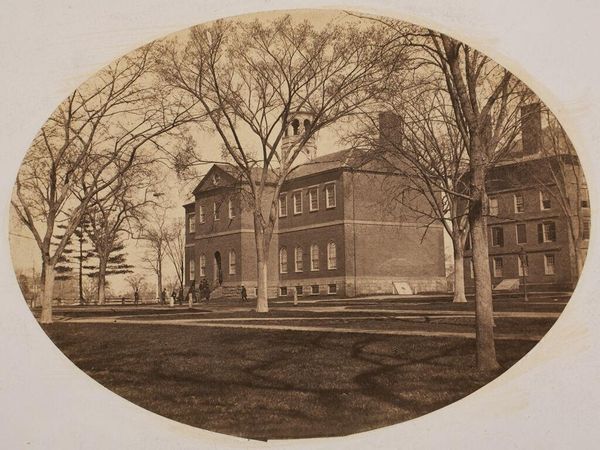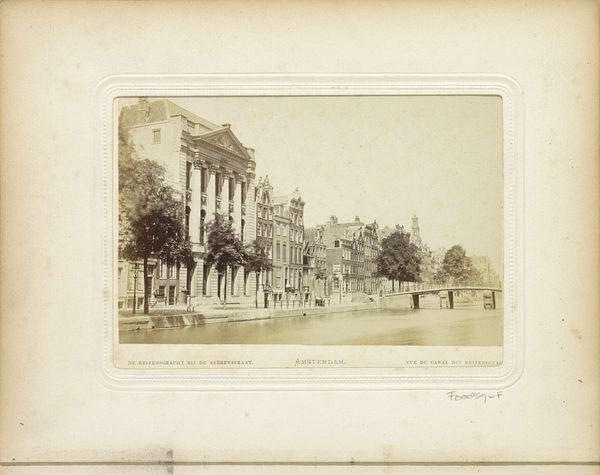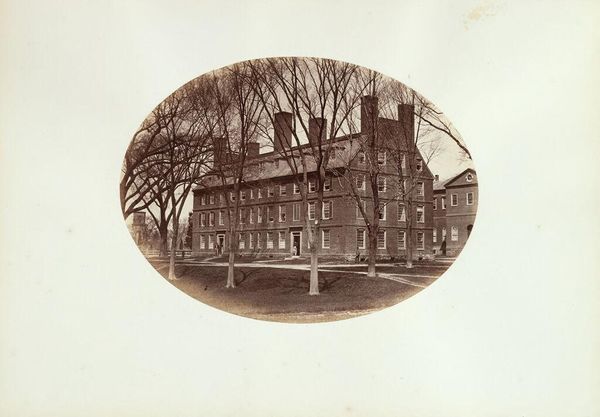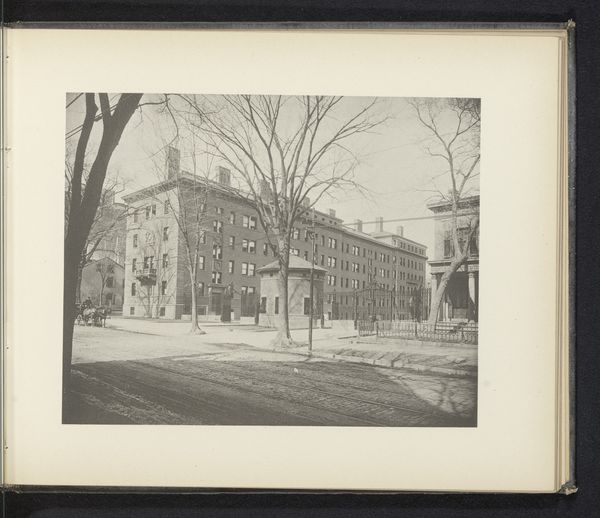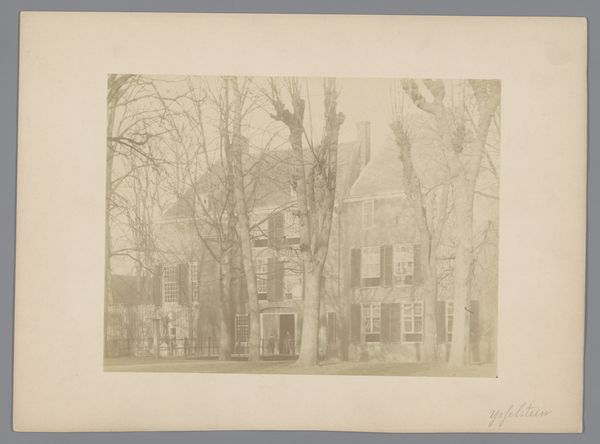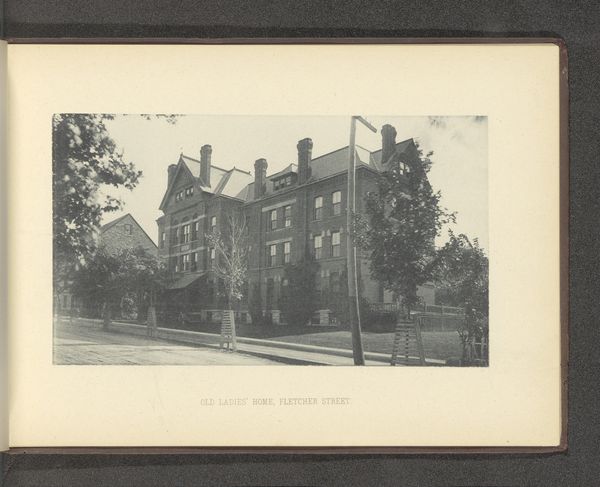
Gezicht op het Physisch Laboratorium in de Bijlhouwerstraat in Utrecht c. 1877
0:00
0:00
eduardfrancoisgeorges
Rijksmuseum
photography
#
landscape
#
etching
#
photography
#
cityscape
#
realism
Dimensions: height 268 mm, width 377 mm, height 482 mm, width 656 mm
Copyright: Rijks Museum: Open Domain
Editor: This photograph, taken around 1877 by Eduard François Georges, presents the Physics Laboratory in Utrecht. It's a pretty straightforward depiction, quite muted in tone, and very architectural. What social context was at play in that era to create a demand for cityscapes? Curator: That's a great entry point. Consider the rise of positivism in the late 19th century—a philosophy emphasizing empirical evidence and scientific progress. A photograph like this served not only as a visual record but also as a testament to societal investment in scientific advancement, especially within emerging fields. It silently declares the city’s commitment to a particular vision of the future. What ideologies might be invisibly framing such scientific endeavors? Editor: So, beyond just documenting a building, it's about celebrating an era of scientific optimism? Was it perhaps a way to communicate power or progress, visually? Curator: Precisely! And who was this progress *for*? Examining who had access to these institutions—who conducted the research, who benefitted from its outcomes—reveals potential disparities. Were opportunities equally available across gender or social class within the scientific community? Consider also how advancements within a scientific context were often predicated on exploitative industrial practices, a dark truth glossed over by photography’s pristine image of enlightenment. Editor: That’s a complex reading of something that seemed, at first glance, simply descriptive! The photograph seems to celebrate knowledge, yet you’re showing the implied exclusionary dimensions and social inequalities inherent within its pursuit. Curator: It invites us to scrutinize the narrative woven around progress. What are its hidden costs and consequences, especially for those whose stories aren’t prominently displayed? Ultimately, viewing the photograph from this lens fosters a richer discussion that extends beyond visual observation towards political reflection. Editor: I’ll never look at an old photograph the same way again! It definitely makes you more aware of the photographer’s cultural perspective, what they valued and what was maybe left unsaid.
Comments
No comments
Be the first to comment and join the conversation on the ultimate creative platform.
